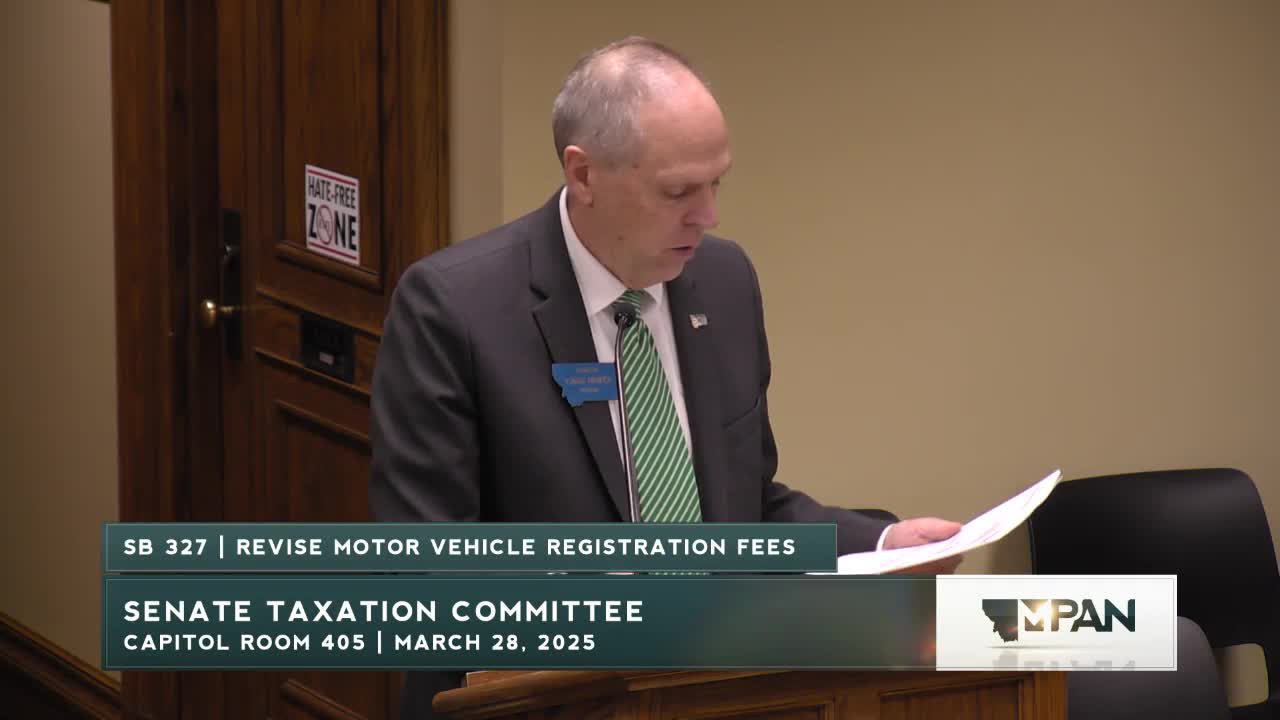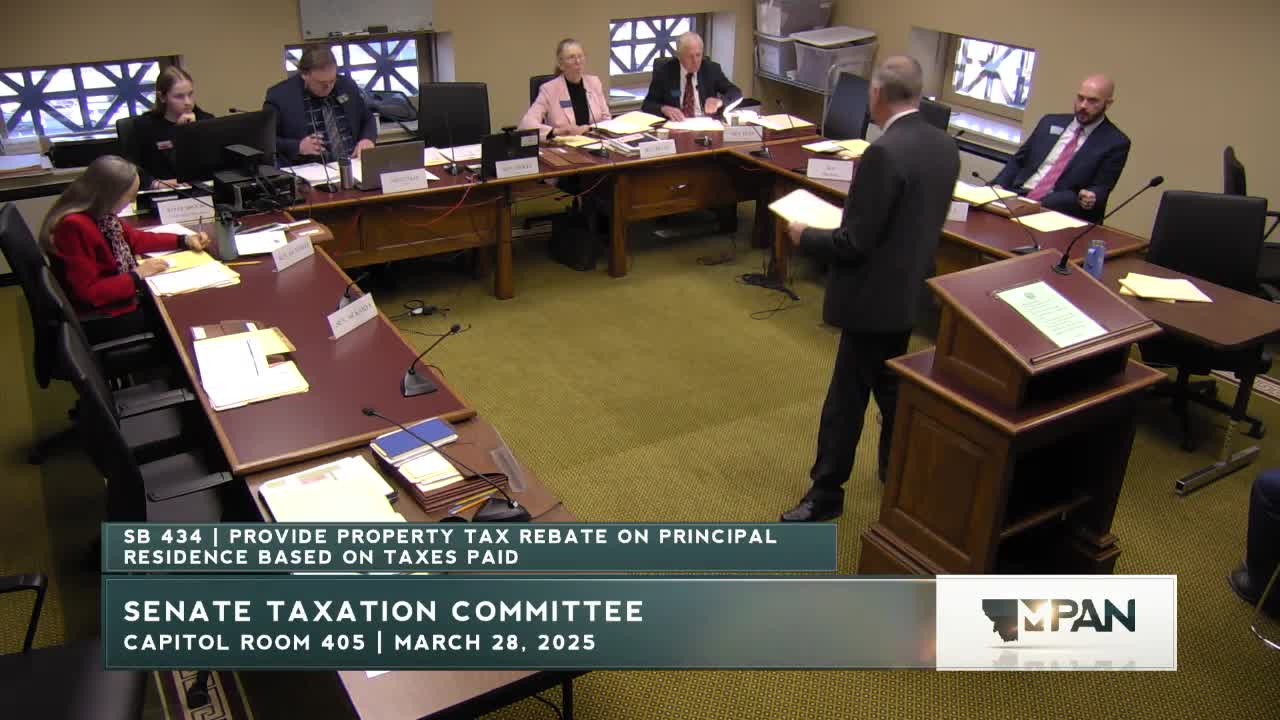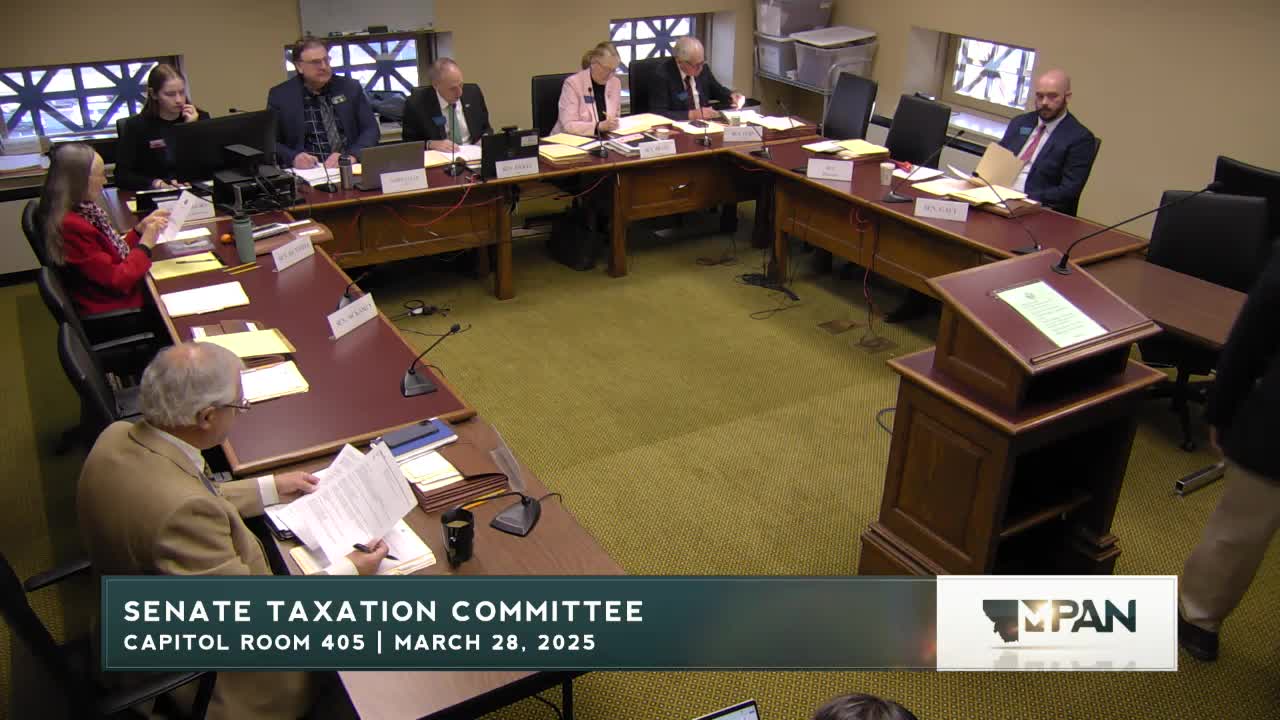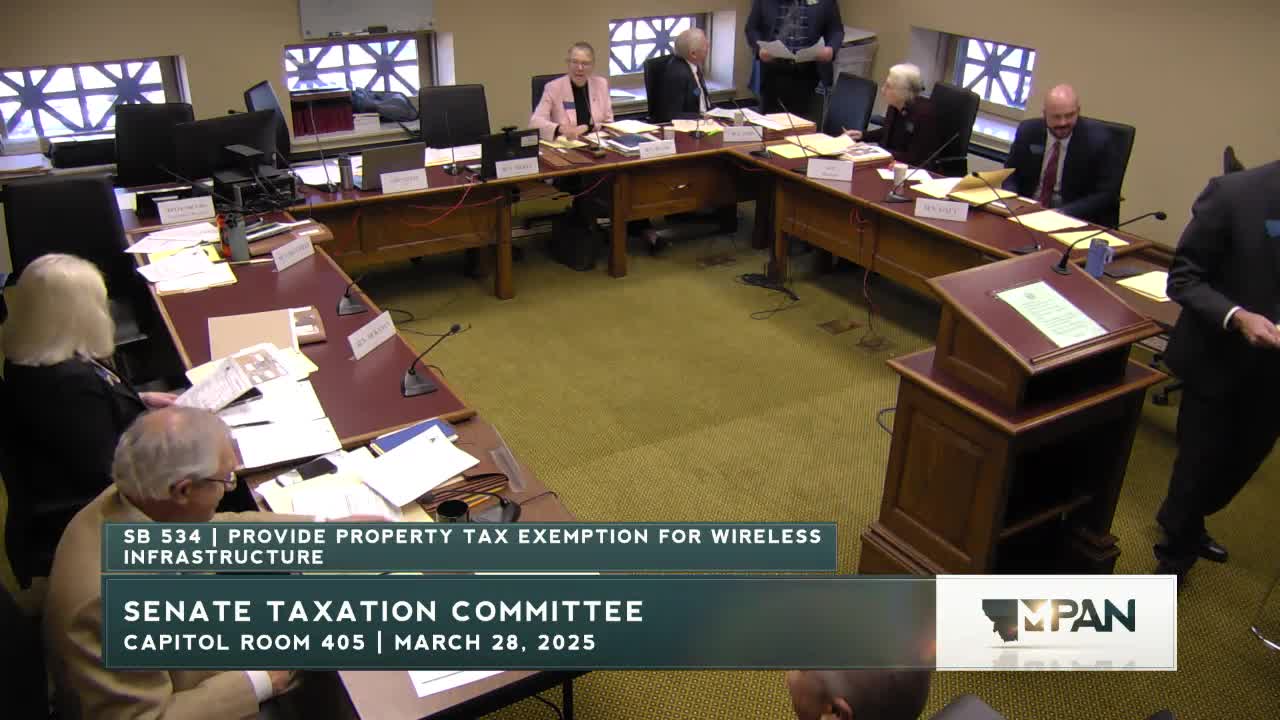Article not found
This article is no longer available. But don't worry—we've gathered other articles that discuss the same topic.

Senate committee reviews broad motor-vehicle registration fee overhaul and moves amended bill forward

Senate committee hears bill to narrow use of special assessments, witnesses cite Helena examples

Sponsor proposes $400 "Plan C" property tax rebate as fallback if broader tax changes fail

